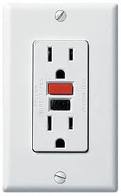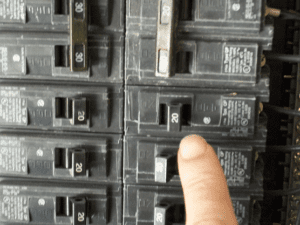Maintenance FAQ
Prevention is the key. Have you kept up on all of your preventative and routine maintenance?
Below you will find instructions on how to fix and prevent various problems in your rental home.
I smell natural gas!
Avoid Furnace Malfunctions
Smoke Detector
Maintain your smoke detector. (Link broken)
Mold and Mildew Control
Poor Maintenance Management = Mold and Mildew Risk
The key to mold control is moisture control.
When water leaks or spills occur indoors – ACT QUICKLY. If wet or damp materials or areas are dried 24-48 hours after a leak or spill happens, in most cases mold will not grow.
Keep indoor humidity low. If possible, keep indoor humidity below 60 percent (ideally between 30 and 50 percent) relative humidity. Relative humidity can be measured with a moisture or humidity meter, a small, inexpensive ($10-$50) instrument available at many hardware stores.
If you see condensation or moisture collecting on windows, walls or pipes ACT QUICKLY to dry the wet surface and reduce the moisture/water source. Condensation can be a sign of high humidity.
Run the bathroom fan or open the window when showering. Use exhaust fans or open windows whenever cooking, running the dishwasher or dishwashing, etc.
Increase ventilation or air movement by opening doors and/or windows, when practical. Use fans as needed.
If mold is a problem in your home, you should clean up the mold promptly and fix the water problem. Report all water plumbing leaks immediately!
It is important to dry water-damaged areas and items within 24-48 hours to prevent mold growth.
Problem areas to check:
On a wall behind a bed.
Behind other furniture.
In closets, especially behind piled clothing.
Electricity FAQ
Many buildings have receptacles in the living room that are controlled by a light switch, so residents can control lamps with the switch. Try the switches in the living room before making a maintenance request.
No power in the garage or bathroom?
Ground Fault Circuit Interrupter (GFCI) receptacles give increased protection to kitchens, bathrooms, garages and basements. These plugs will typically trip before a breaker. To reset, push the “test” button and then push the “reset” button.

Check Breaker

This is an example of what a tripped breaker looks like. Notice that it doesn’t turn off all the way. It is in the middle. Before resetting, unplug everything and turn all lights off to the circuit. Also ensure that no unsafe conditions exist. Some examples may include standing water, bared wires, or a broken receptacle. To reset, push to the off position and then push back to the on position.
Check Fuse
Some older houses use fuses for electrical safety. Located inside or outside of your home is a fuse box that contains a fuse for each of your home’s circuits. A fuse provides protection for each of your electrical circuits by stopping the flow of current if an overload or fault occurs. When an electrical short occurs or the load on your circuit becomes too great, the fuse on that circuit burns out and breaks the circuit; this is what is referred to as a “blown fuse.”
How To Replace A Fuse (Link Broken)




